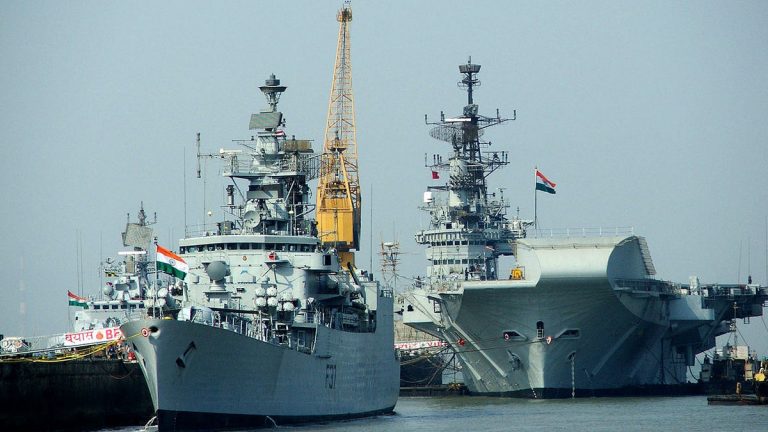
SOURCE: THE PRINT
India is yet to formally invite Australia to the Malabar naval exercise, even as tensions between New Delhi and Beijing continue to soar. Talks are also on over whether or not the annual naval exercise should be postponed this year, ThePrint has learnt.
According to top Indian diplomatic and defence sources, New Delhi has not yet officially communicated to Canberra whether it can be part of the annual Malabar exercise that takes place between India, Japan and the US.
This comes at a time when India is engaged in a major border standoff with China, touted as the most serious challenge New Delhi faced since the 1962 war, in the Ladakh sector of the Line of Actual Control (LAC).
Inviting Australia to the Malabar at this juncture would mean a “major signalling” to Beijing that countries are standing up against China within the larger Indo-Pacific construct. But sources said such a move can irk Beijing, disrupting the ongoing talks on disengagement and de-escalation between India and China.
A senior Navy officer explained that the importance of Australia is its geographical location, in the deep South Indian Ocean, from where the far reaches of choke-points such as the Sunda Strait and the Wetar Strait can be kept under surveillance for approaching Chinese ships and submarines.
“So it is important both politically and militarily to have Australia as an ally in the quad,” the officer said, adding that the Malabar exercise will check interoperability between the navies and is an instrument of foreign policy.
“It will definitely be a messaging (to China),” the officer added.
Exercise may be postponed
According to a diplomat from one of the participating countries, the Malabar exercise may not take place this year owing to the coronavirus pandemic, coupled with other factors such as the US presidential elections in November and stepping down of Japanese Prime Minister Shinzo Abe even as his successor is yet to be announced.
India is gearing up to hold a foreign ministers’ meeting of the Quad — the US, India, Australia and Japan — in October. It is significant as this is for the first time New Delhi will be hosting a meeting of the Quad, also known as Quadrilateral Security Dialogue.
During this meeting, the issue of Malabar naval exercise may also come up.
The matter is also on agenda for the summit meeting between India and Japan. Prime Minister Narendra Modi will be virtually holding the summit with Japan’s outgoing PM later this month. India and Japan also expected to sign the crucial defence logistics pact, Acquisition and Cross Servicing Agreement (ACSA).
“Our immediate problem is not in the ocean but in the land when it comes to China. So right now what is important is the right kind of signal. Inviting Australia at this time may create some disturbance in the dialogue process that is going on between India and China,” said Rajiv Bhatia, former diplomat and distinguished fellow at Gateway House, a Mumbai-based think-tank. “When and if Malabar will be held, Australia will be invited. But right now India’s priorities are different.”
Changing dynamics between Australia and China
Australia did take part in the bilateral India-US exercise in 2007. But even after Japan joined in 2015, New Delhi did not show any interest in inviting Canberra due to the latter’s proximity with Beijing, and also India did not want to upset its own equation with China.
But now, sources said, that scenario has changed. China’s increasing aggression with countries within the Indo-Pacific region, coupled with the pandemic, has led to a paradigm shift in the bilateral ties between Canberra and Beijing.
In July this year, Modi and his Australian counterpart Scott Morrison upgraded their ties to the level of ‘Comprehensive Strategic Partnership’ as both signed the long pending ‘Mutual Logistics Support’ agreement paving the way for greater defence cooperation.
Former Navy Chief Admiral Arun Prakash (retd) told ThePrint the Indo-US Malabar naval exercises are more than 25 years old but Australia’s proposed participation this year will carry a special significance because of the India-China stand-off.
He said the importance of this year’s Malabar is not so much in the Covid-19 situation as in China’s aggressive conduct in the Indo-Pacific as well as on India’s northern borders.
“From our point of view, Australia joining Malabar, will send another signal to China that a broader Indo-Pacific consensus is emerging against it,” the former Navy chief said, adding that Australia will become one more “partner in the alliance” to oppose China’s aggressive conduct.






